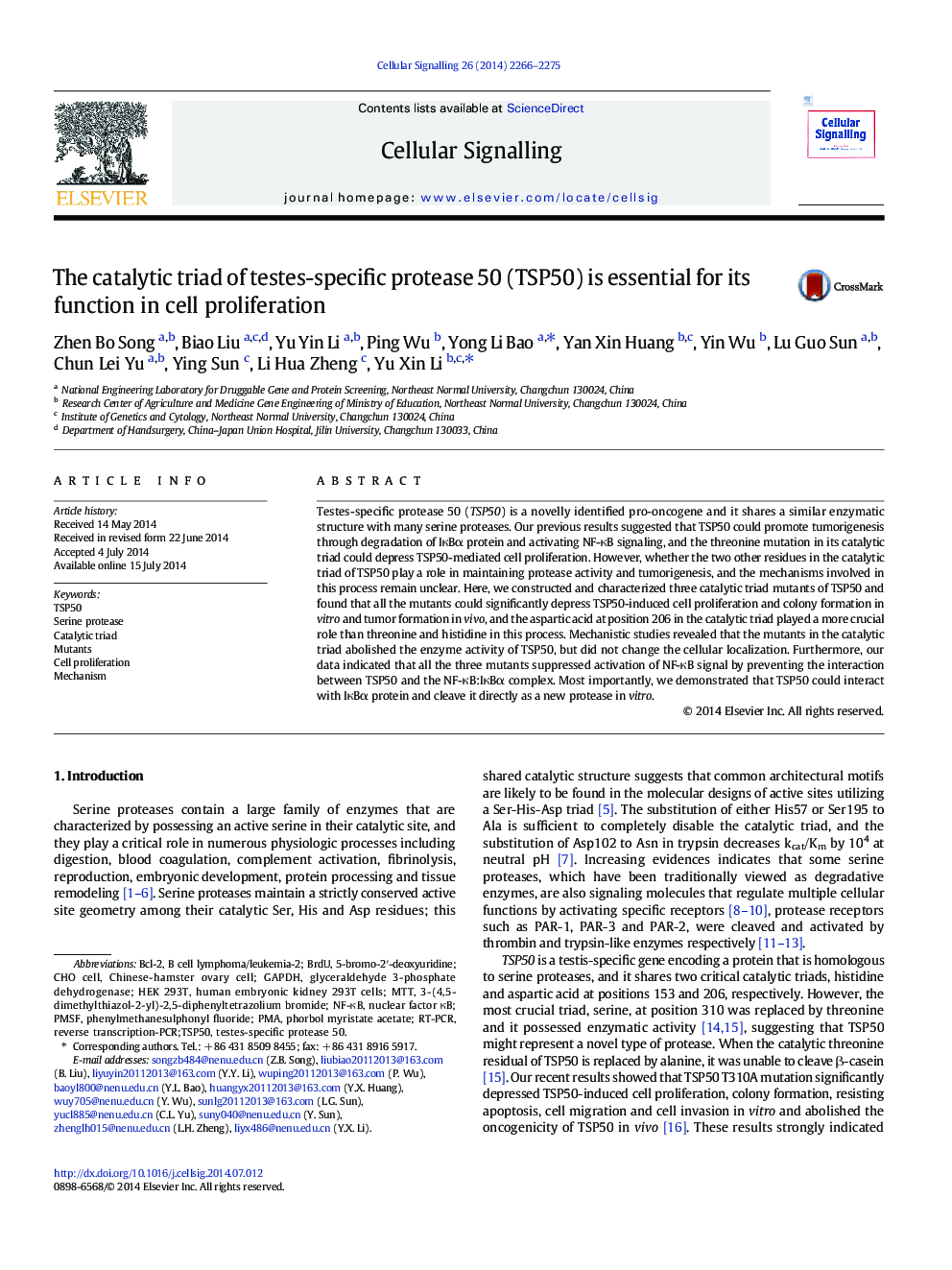| Article ID | Journal | Published Year | Pages | File Type |
|---|---|---|---|---|
| 10815216 | Cellular Signalling | 2014 | 10 Pages |
Abstract
Testes-specific protease 50 (TSP50) is a novelly identified pro-oncogene and it shares a similar enzymatic structure with many serine proteases. Our previous results suggested that TSP50 could promote tumorigenesis through degradation of IκBα protein and activating NF-κB signaling, and the threonine mutation in its catalytic triad could depress TSP50-mediated cell proliferation. However, whether the two other residues in the catalytic triad of TSP50 play a role in maintaining protease activity and tumorigenesis, and the mechanisms involved in this process remain unclear. Here, we constructed and characterized three catalytic triad mutants of TSP50 and found that all the mutants could significantly depress TSP50-induced cell proliferation and colony formation in vitro and tumor formation in vivo, and the aspartic acid at position 206 in the catalytic triad played a more crucial role than threonine and histidine in this process. Mechanistic studies revealed that the mutants in the catalytic triad abolished the enzyme activity of TSP50, but did not change the cellular localization. Furthermore, our data indicated that all the three mutants suppressed activation of NF-κB signal by preventing the interaction between TSP50 and the NF-κB:IκBα complex. Most importantly, we demonstrated that TSP50 could interact with IκBα protein and cleave it directly as a new protease in vitro.
Keywords
NF-κBhuman embryonic kidney 293T cellsHEK 293TPMSFBcl-2RT-PCRGAPDH3-(4,5-dimethylthiazol-2-yl)-2,5-diphenyltetrazolium bromide5-bromo-2′-deoxyuridinePMAMTTBrdUCell proliferationMutantsSerine proteaseCHO cellCatalytic triadnuclear factor κBphorbol myristate acetatephenylmethanesulphonyl fluoridereverse transcription-PCRMechanismglyceraldehyde 3-phosphate dehydrogenase
Related Topics
Life Sciences
Biochemistry, Genetics and Molecular Biology
Biochemistry
Authors
Zhen Bo Song, Biao Liu, Yu Yin Li, Ping Wu, Yong Li Bao, Yan Xin Huang, Yin Wu, Lu Guo Sun, Chun Lei Yu, Ying Sun, Li Hua Zheng, Yu Xin Li,
